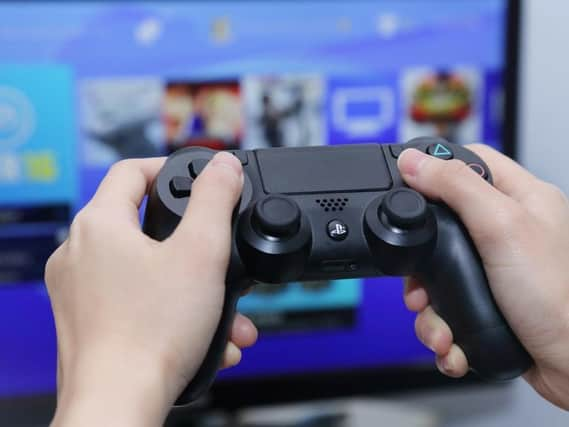CHILDLINE ADVICE: How to keep your child safe when gaming online


Gaming is a great way for young people to relax, socialise with their friends and have fun.
They can also chat to other players using messaging platforms, or watch livestreams of well-known gamers.
Advertisement
Hide AdAdvertisement
Hide AdUnfortunately, children and young people have told us at Childline that they have experienced negative experiences while gaming, such as grooming and harassment. This doesn’t mean we should stop our children from playing games. Instead, we can work to recognise the signs of gaming danger, and encourage children to know that they have a right to be safe when gaming.
I always advise taking age ratings seriously, with most games having ratings provided by PEGI. Age ratings give an overview of individual games which can help you to decide if it’s appropriate. Games with violent and sexual content will have a higher rating. However, PEGI ratings don’t take into account online chat features, which is something to be mindful of as a parent.
Some games are designed to be played in teams or against other people, and sometimes players can be based in different locations. This means young people can easily play with people they don’t know and haven’t met. They can communicate using voice, video or text chat. Some gamers use voice chat to discuss tactics or trade items, but it can turn into something malicious. One girl told Childline: “I was obsessed with this online multiplayer game at the time, and I was going around asking people if I could give them a cheap item and they give me something else back. One guy told me to talk dirty to him so I could get all these rare items. So, I began. I’m ashamed and I wouldn’t do it ever again.”
Other players may swear or use abusive language over voice chat, and this can be upsetting
Advertisement
Hide AdAdvertisement
Hide Adfor your child. One girl told Childline: “I was playing a fortnite squad game and I joined a party invite. They instantly started to say crude comments because they heard my voice was female…they were saying offensive comments such as “I hope you kill yourself and get raped”.
Unfortunately, in situations like this, a child may be hearing these vile comments through a headset. Not only does that mean that they might feel overwhelmed and surrounded, but even if a parent or carer is in the room they won’t be able to hear it. If a child is worried about telling an adult, then they could be left to deal with this alone.
In both scenarios, I think the most important thing to do is let the child know that it’s not their fault. Having regular discussions with a child about their gaming habits can encourage them to come forward if something like this does happen. Aside from talking to your child, I suggest that parents and carers make themselves aware of the game their child is playing. That way, you know what children could be accessing and what the gameplay involves. You can even do this by sitting down with your child when you first get the game, and playing it together.
It’s also good idea to explore privacy settings before your child plays the game. You can set limits on how long a young person can play, and prevent them from speaking to unknown players.
Advertisement
Hide AdAdvertisement
Hide AdFor more information, you can visit NetAware, a tool created by the NSPCC and O2 to help people familiarise themselves with the latest games, their risks, and top tips for helping a child to stay safe when playing games online.